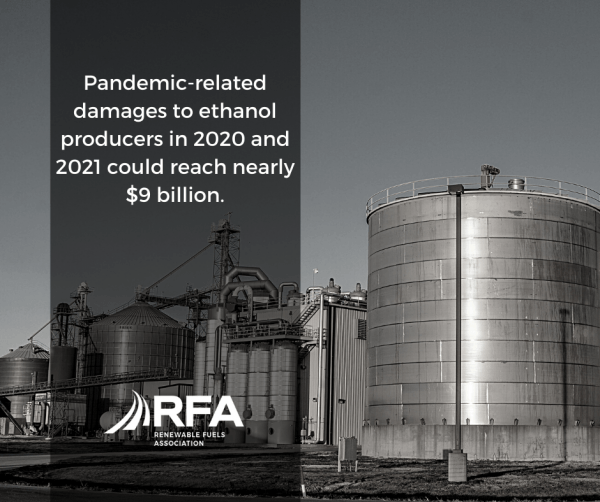Is Helping the Ethanol Industry Your Priority?

In the heat of COVID-19 shutdowns in March and April, we all watched as the ethanol industry took a heavy blow, as people quit traveling to work, to school, for pleasure and for profit. Now we know, an estimated $9 billion impact was the result.
You have an opportunity to help. Using the Renewable Fuels Association’s advocacy platform, you can weigh in with your elected officials and support legislation that supports ethanol.
If you’re still not sure, check out all the impacts a healthy and thriving U.S. ethanol industry has for our rural economies and all the products we love.
5 Reasons Helping the Ethanol Industry Should Be a Priority
1) Rural jobs are in danger. The COVID-19 pandemic on top of an already troubling year for the agricultural economy, has caused more than 150 ethanol plants – over three quarters of U.S. facilities – to either partially or fully idle production, with just over half the total U.S. capacity now offline. For an industry that supports more than 300,000 U.S. jobs, this is an especially hard blow for rural America.
2) A key corn market is at risk. Ethanol represents the largest domestic market for U.S. corn, our nation’s largest crop. This year, the industry was on track to convert more than 5.4 billion bushels of corn, valued to farmers at more than $20 billion, into ethanol and key co-products like livestock feed, corn oil and biogenic carbon dioxide.
3) Livestock producers need feed. Distillers grains are a valuable high-protein ethanol co-product for meat and poultry. Last year, 38 million tons of distillers grains were produced, and based on assessments of how much ethanol capacity is currently offline, we would see 18 million tons less feed production on an annualized basis.
4) We bring bubbles to beer and soda. Many ethanol plants, between 45 and 50, capture and sell CO2. It is estimated that ethanol plants capture 3 to 3.5 million tons of CO2 annually, approximately 40 percent of the national supply. This has many uses in the food and beverage industry, among others.
5) Ethanol is a key ingredient in hand sanitizer. One of the greatest stories to come out of this is the increased use of ethanol for hand sanitizer and related products. While many ethanol plants have retooled for this important product, current FDA guidelines are currently unclear and discourage broader use.







